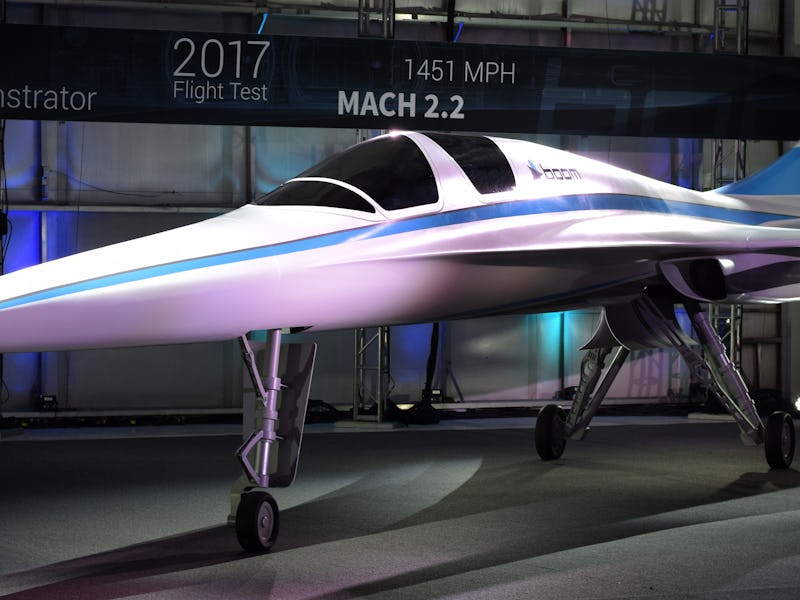
It may seem like the dream of supersonic travel died with the Concorde’s retirement back in 2003, but there are still a few companies working on designs that may soon be shuttling people across the Atlantic at a couple times the speed of sound. One of those companies, Boom Technology, finally unveiled a prototype on Tuesday — and the “Baby Boom” looks pretty damn sleek.
Boom Technology hopes to offer business travelers seats on its 45-passenger Boom aircraft by the early 2020s. But before the Boom becomes a reality, the company needs to test out their design in the real world. That’s where the Baby Boom prototype comes in.
The prototype, officially known as the XB-1, is one-third the size of the full-fledged Boom, seats two, and will start test flights in late 2017. Subsonic tests will take place in Colorado, near Boom Technology’s headquarters outside of Denver, while supersonic test flights will happen near Edwards Air Force Base in California.
A rendering of the XB-1 (top) and the full-sized Boom aircraft.
Flights on the Boom are expected to cost $5,000 round-trip, which is expensive, but still cheaper than the $12,000 average round-trip cost of a flight on the Concorde. The price drop is a result of newer, lighter materials that have been developed since the Concorde was engineered.
Just like the Concorde, the Boom will be limited to routes over water —like trips from New York to London and San Francisco to Tokyo — due to a Federal Aviation Administration rule that prohibits supersonic flights over land. Both the Boom and the Baby Boom will cruise at 60,000 feet at a speed of Mach 2.2, faster than the Concorde’s Mach 2.
The first 10 Booms have already been purchased by Richard Branson’s Virgin Galactic, and Branson’s The Spaceship Company is helping Boom Technology with parts of the manufacturing and testing process. Boom Technology has competition from Lockheed Martin and NASA, along with Airbus-backed Aerion, but it’s unlikely any of the companies will be offering supersonic commercial flights before the early 2020s.